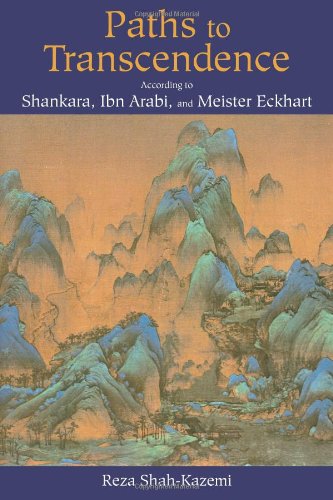

Most ebook files are in PDF format, so you can easily read them using various software such as Foxit Reader or directly on the Google Chrome browser.
Some ebook files are released by publishers in other formats such as .awz, .mobi, .epub, .fb2, etc. You may need to install specific software to read these formats on mobile/PC, such as Calibre.
Please read the tutorial at this link: https://ebookbell.com/faq
We offer FREE conversion to the popular formats you request; however, this may take some time. Therefore, right after payment, please email us, and we will try to provide the service as quickly as possible.
For some exceptional file formats or broken links (if any), please refrain from opening any disputes. Instead, email us first, and we will try to assist within a maximum of 6 hours.
EbookBell Team

4.1
10 reviews
ISBN 13: 9780941532976
Author: Reza Shah Kazemi
This groundbreaking book is the first to compare and illuminate the doctrine of the Transcendent Absolute, and its implications both conceptually and experientially, in the spiritual perspectives of three towering figures in the history of world religions. Shankara, Ibn ‘Arabi, and Meister Eckhart represent the metaphysical and mystical summits of Hinduism, Islam, and Christianity. By focusing on the theme of transcendence, often neglected in studies of religion and comparative mysticism, this work takes the reader to the heart of Religion as such, ultimately illuminating the unity of spiritual vision and experience which underlies all religious forms. In our day when there is much strife between several religious factions, the teachings of these great masters—illustrated through rigorous analysis of key primary texts—point to a path of true ecumenical understanding.
CHAPTER 1 SHANKARA: Tat tvam asi
Part I: Doctrine of the Transcendent Absolute
1. Designations and Definitions of the Absolute
2. Being and Transcendence
Part II: The Spiritual Ascent
1. The Role of Scripture
2. Action
3. Rites and Knowledge
4. Meditation
5. Concentration and Interiorization
6. Moksa
Part III: Existential “Return”
1. The Mind
2. “All is Brahman”
3. Action and Prarabdha Karma
4. Suffering and the Jivan-Mukta
5. Devotion
CHAPTER 2 IBN ARABI: La ilaha illa’Llah
Part I: Doctrine of the Transcendent Absolute
1. Doctrine as Seed or Fruit?
2. Unity and Multiplicity
Part II: The Spiritual Ascent
1. Sainthood and Prophethood
2. Ontological Status of the Vision of God
3. Fana’
Part III: Existential “Return”
1. Poverty and Servitude
2. “The People of Blame”
3. Theophany: Witnessing God’s “Withness”
4. The Heart and Creation
Part IV: Transcendence and Universality
CHAPTER 3 MEISTER ECKHART: The Geburt
Part I: Doctrine of the Transcendent Absolute
1. Beyond the Notion of God
2. From God to Godhead
Part II: The Spiritual Ascent
1. Virtue and Transcendence
2. Unitive Concentration, Raptus, and the Birth
3. Intellect and Grace
Part III: Existential “Return”
1. Thought and Action in the World
2. Seeing God Everywhere
3. The Saint and Suffering
4. Poverty
CHAPTER 4 THE REALIZATION OF TRANSCENDENCE: Essential Elements of Commonality
Part I: Doctrines of Transcendence
1. Dogma and Beyond
2. One Absolute or Three?
Part II: The Spiritual Ascent
1. Virtue
2. Ritual and Action
3. Methods of Ascent
4. Bliss and Transcendence
5. Transcendent Union
6. Agency in Transcendent Realization
7. Grace
Part III: Existential “Return”
1. Poverty
2. Existence and Suffering
3. Devotion and Praise
4. Vision of God in the World
transcendence was will good
paths of transcendence
paths to the absolute
the path to transcendence
a path to sunshine cove
a path to redeeming love
a path to deep healing
Tags: Reza Shah Kazemi, Paths, Transcendence